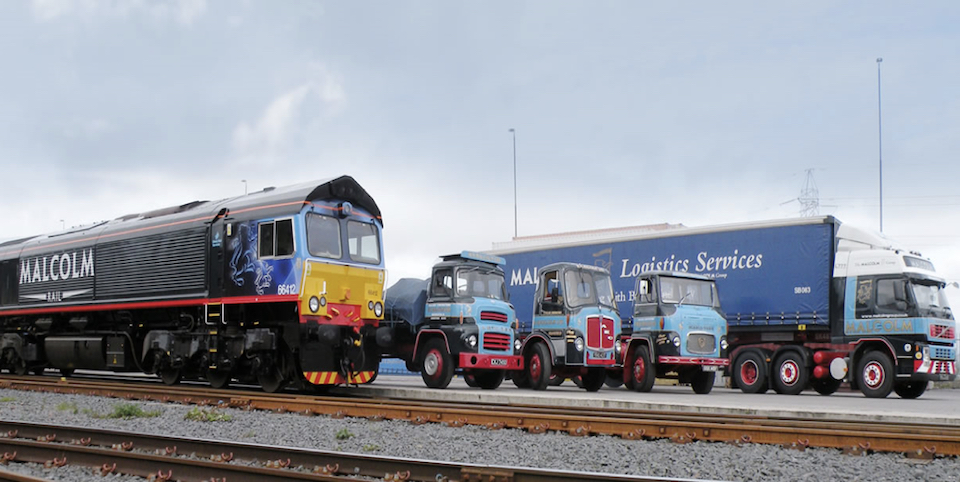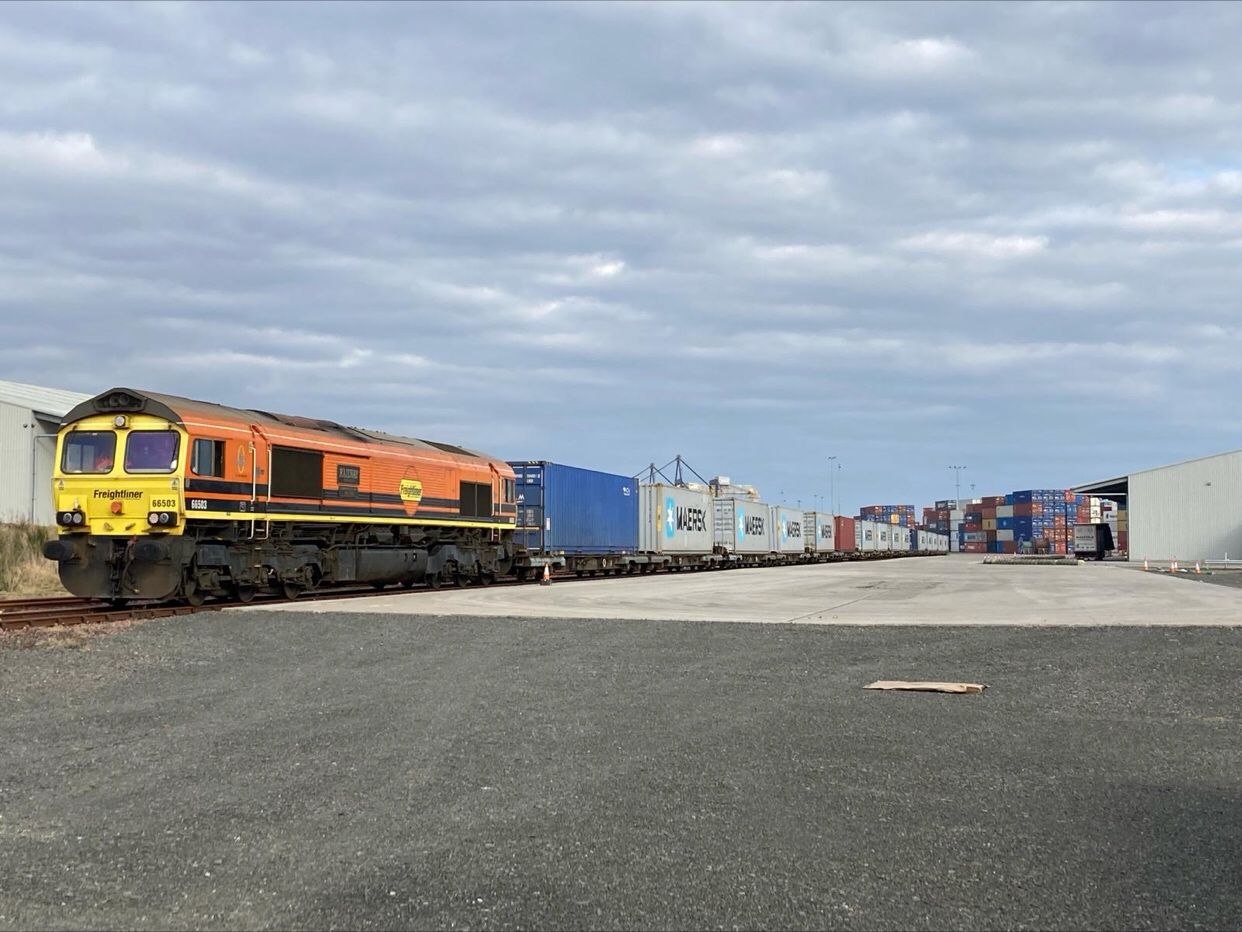A trial has been held of a sub-fifty mile (80km) intermodal haul in Central Scotland. The revival could connect an intermodal terminal in Paisley, to the west of Glasgow, with the rail freight terminal at the Port of Grangemouth on the River Forth. The rail freight connection would offer an alternative to the congested roads through the centre of Glasgow, Scotland’s biggest city.
It would avoid the notoriously congested M8 motorway which, in its central Glasgow section, is the widest highway in Europe. A collaboration between several parties has made possible the resurrection of a popular short haul intermodal flow. Scottish haulage company WH Malcolm, Forth Ports, Network Rail, and Freightliner all contributed to the exercise. The test train, which took twenty revenue-earning intermodal containers, operated in both directions last week.
Rekindled hopes for a domestic intermodal
The wilderness of Scotland’s Highlands is in stark contrast to the heavily populated Central Belt. That concentration of population has put many concepts for domestic rail freight beyond viability, until now. Road transport has always had the edge for the relatively short distances involved. A domestic intermodal package has hardly been on the transport radar in Scotland. However, a successful trial run last week could bring the concept back into the mainstream.

There is a significant development with wider implications for Scotland’s transportation sector. A resurrected intermodal service, covering just under fifty miles (80km) has been successfully trialed. The interest shown by a raft of customers has rekindled hopes for a resurgence in domestic intermodal rail freight operations. Spearheaded by Scottish haulage giant WH Malcolm, in collaboration with Forth Ports, Network Rail, and Freightliner, the trial marked a significant step towards leveraging rail freight to bolster Scotland’s decarbonisation strategy.
Positive difference to reduce road traffic
The trial service, linking The Malcolm Group’s Elderslie facility to Forth Ports Limited in Grangemouth, is aimed at stimulating growth in rail freight. The reasons behind the trial are multiple. Not least is the Scottish Government’s ambitious target for net-zero by 2045. However, the key to success is commercial viability. The partners in the venture hope to persuade customers it is a worthwhile proposition. The trial coincided with the Rail Freight Group’s annual Scottish Conference in Grangemouth. That ensured a VIP audience was on hand to witness the laden return journey from the port rail terminal.

“Congratulations on the success of the trial service”, said Richard Mannion, the Head of Solution Design at Freightliner Group, who facilitated the motive power for the train. “Certainly a positive difference to reduce road traffic on the Central Belt with this development. Kudos to The Malcolm Group for driving this initiative and to the various partners for supporting and delivering.”
Dependent on government support
If the trial is to become more permanent, it would represent a shorthaul breakthrough for the rail freight sector. WH Malcolm is no stranger to that concept. They previously operated the Elderslie to Grangemouth route from 2008 to 2014. The company has just entered its twenty-fourth year in rail freight, despite still being better known for its extensive road haulage operations.
WH Malcolm has dubbed the service “48 tonnes for 48 miles”. However, the plan to reintroduce the service hinges on crucial financial support. That includes the Modal Shift Revenue Support (MSRS) scheme from the Scottish Government. That particular element may be in question. The current Scottish budget has required a suspension of financial support under the scheme. That is something that the entire rail freight sector would like to see reviewed.